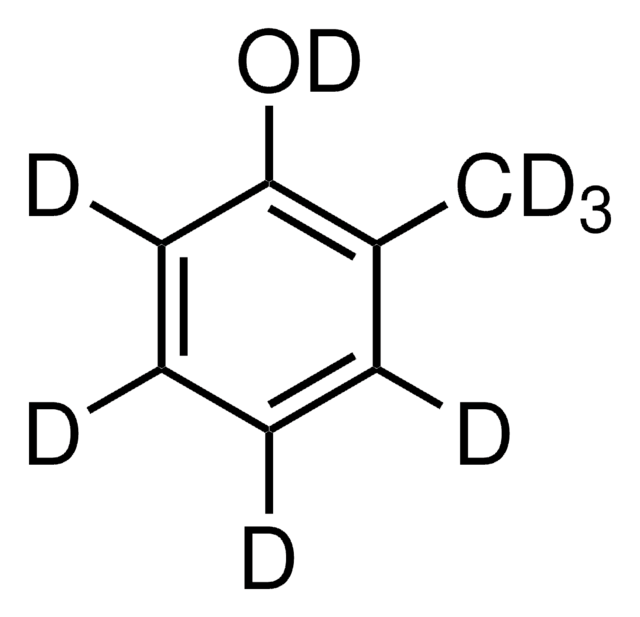C85700
o-Cresol
ReagentPlus®, ≥99%
Synonym(s):
2-Methylphenol
About This Item
Recommended Products
vapor density
3.72 (vs air)
vapor pressure
0.3 mmHg ( 20 °C)
product line
ReagentPlus®
Assay
≥99%
form
solid or liquid
autoignition temp.
1110 °F
expl. lim.
1.47 %, 148 °F
pH
4.5 (25 g/L)
bp
191 °C (lit.)
mp
29-31 °C (lit.)
SMILES string
Cc1ccccc1O
InChI
1S/C7H8O/c1-6-4-2-3-5-7(6)8/h2-5,8H,1H3
InChI key
QWVGKYWNOKOFNN-UHFFFAOYSA-N
Looking for similar products? Visit Product Comparison Guide
Related Categories
Legal Information
Signal Word
Danger
Hazard Statements
Precautionary Statements
Hazard Classifications
Acute Tox. 3 Dermal - Acute Tox. 3 Oral - Aquatic Chronic 3 - Eye Dam. 1 - Skin Corr. 1B
Storage Class Code
6.1A - Combustible acute toxic Cat. 1 and 2 / very toxic hazardous materials
WGK
WGK 2
Flash Point(F)
177.8 °F - closed cup
Flash Point(C)
81.0 °C - closed cup
Certificates of Analysis (COA)
Search for Certificates of Analysis (COA) by entering the products Lot/Batch Number. Lot and Batch Numbers can be found on a product’s label following the words ‘Lot’ or ‘Batch’.
Already Own This Product?
Find documentation for the products that you have recently purchased in the Document Library.
Customers Also Viewed
Our team of scientists has experience in all areas of research including Life Science, Material Science, Chemical Synthesis, Chromatography, Analytical and many others.
Contact Technical Service











